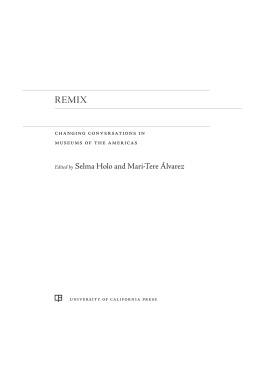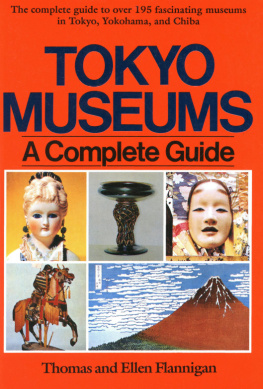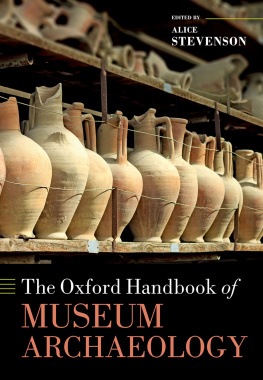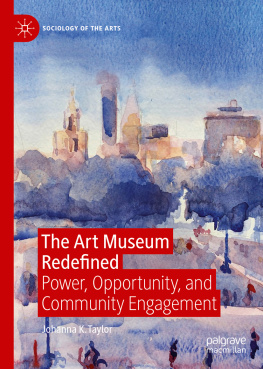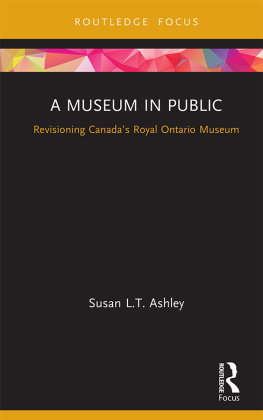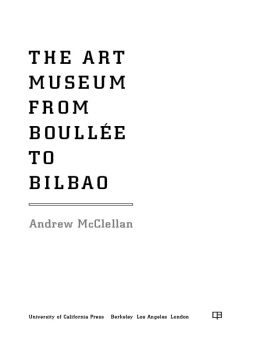The publisher gratefully acknowledges the generous support of the Judy and Bill Timken Endowment Fund in Contemporary Arts of the University of California Press Foundation.
University of California Press, one of the most distinguished university presses in the United States, enriches lives around the world by advancing scholarship in the humanities, social sciences, and natural sciences. Its activities are supported by the UC Press Foundation and by philanthropic contributions from individuals and institutions. For more information, visit www.ucpress.edu.
Artwork 2014 by Richard Parker..
Remix : changing conversations in museums of the Americas / edited by Selma Holo and Mari-Tere lvarez.
p. cm.
Includes bibliographical references.
ISBN 978-0-520-28452-4 (cloth : alk. paper) ISBN 0-520-28452-6 (cloth : alk. paper) ISBN 978-0-520-28453-1 (pbk. : alk. paper) ISBN 0-520-28453-4 (pbk. : alk. paper) ISBN 978-0-520-96011-4 (ebook) ISBN 0-520-96011-4 (ebook)
1. MuseumsUnited States. 2. MuseumsLatin America. 3. MuseumsCanada I. Holo, Selma, editor. II. lvarez, Mari-Tere, editor.
In keeping with a commitment to support environmentally responsible and sustainable printing practices, UC Press has printed this book on Natures Natural, a fiber that contains 30% post-consumer waste and meets the minimum requirements of ANSI/NISO Z 39.481992 ( R 1997) ( Permanence of Paper ).
CONTENTS
Selma Holo and Mari-Tere lvarez, United States
scar Arias Snchez, Costa Rica
Manuel Araya-Incera, Costa Rica
Nelly M. Robles Garca, Mexico
Cuauhtmoc Camarena and Teresa Morales, Mexico
Hctor Feliciano, Puerto Rico
Mario Vargas Llosa, Peru
Carlos Tortolero, United States
Lori Starr, United States
Edward Rothstein, United States
Selma Holo and Mari-Tere lvarez, United States
Lydia Bendersky, Chile
Andrs Navia, Colombia
Ben Garcia, United States
Stephen E. Nash and Chip Colwell, United States
Guillermo Barrios, Venezuela
Piedade Grinberg, Brazil
Clare Kunny, United States
Ivan Gaskell, United States
Vanda Vitali, Canada
Selma Holo and Mari-Tere lvarez, United States
Maxwell L. Anderson, United States
Kristina Van Dyke, United States
Richard Koshalek and Erica Clark, United States
Susana Smith Bautista, United States
Demian Flores, Mexico
Fred Wilson and David Wilson, United States
Marco Barrera Bassols, Mexico
Alejandro de vila B., Mexico
Selma Holo and Mari-Tere lvarez, United States
James D. Fleck with Nichole Anderson, Canada
Graham W.J. Beal, United States
Thomas P. Campbell, United States
Tom Hanchett, United States
JoAnne S. Northrup and William Fox, United States
Jane Burrell and Karen Satzman, United States
Jane G. Pisano, United States
Patricia Phelps de Cisneros, Venezuela
Santiago Palomero Plaza, Spain
Miguel Fernndez Flix, Mexico
PREFACE AND ACKNOWLEDGMENTS
The International Museum Institute, the research unit of the Fisher Museum of Art at the University of Southern California, has existed in a loose and extended partnership with the Museo Universitario de Arte Contemporneo (MUAC) in Coyoacn, Mexico, and the Universidad Nacional Autnomo de Mxico (UNAM) in Mexico City for a little over a decade. Known as IMI, this provocative think tank focuses on disrupting the hierarchies and disciplinary demarcations that, even as they offer structure, have also effectively limited our conversations in the museum world. Through a series of intimate workshops, lectures, and conferences held in Mexico and the United States, IMIs horizons have continued to expand, break down, and build up that worlds normal communications networks.
The first book that IMI produced, Beyond the Turnstile: Making the Case for Museums and Sustainable Values (Rowman and Littlefield, 2009), presented the results of its search for a set of agreed-upon qualitative and sustainable values for museums that could be shared with a wide swath of museum-interested parties. The sessions leading to our conclusions were lively and surprising, as we discovered that values we had all thought to be universal and self-evident were actually subject to question when debated in an open and international arena. What we agreed upon throughout the process, however, was that our findings were needed in the field in order to provide an alternativean antidoteto the then generally accepted belief that any museums worth could best be demonstrated quantitativelythat is, by the number of admissions it generated.
Beyond the Turnstile thus evolved into a kind of advocacy handbook, offering a decalogue of qualitative values we did all agree upon. More than that, our readers encountered a broad and international range of interpretations of those values. Beyond the Turnstile was helpful in inspiring more enthusiastic support from our stakeholders. Not only did it help those stakeholders gain a clearer understanding of the indispensability of museums to society, but it also gave them the language to encourage others in their circles to lend their support to the museum enterprise. Of course, Beyond the Turnstile was expressly useful for museum professionals themselves, as it allowed for an expanding consciousness about the world in which they/we work. And, finally, for students of museums, it was, as one reviewer noted in the words of Claude Lvi-Strauss, good to think with.
From its earliest days, IMI has focused on uncovering the nature of sustainability in museums. Now, in Remix, we are traveling beyond a discussion of sustainable values toward one focused on recognizing museums life cycles in order to better guide us in our quest for sustainability. We should add here that although IMIs scope was initially more broadly international, in recent years it has found itself gravitating toward the Americas. In the western hemisphere we have been encountering a compelling critical mass of elective affinitiesalong with their attendant challenges and opportunitiesthat, when gathered together, afford the possibilities of changing conversations.
And so, Remix: Changing Conversations in Museums of the Americas, IMIS second book, delivers to its readers an unexpected web of the visions, voices, and perspectives of museum practitioners, philosophers, statesmen, collectors, artists, practitioners, theorists, and fundersall of them writing from or about the Americas. Because the essays we included are organized under life-cycle themes ranging from origins to renewal, and since they are presented panarchically (that is, neither hierarchically nor by discipline), they direct the reader toward an open-ended and experimental vision for museums, while at the same time interrogating the broad role of museums in the Americas. We are calling this vision a Panarchy, and we will discuss it thoroughly in the introduction to follow.

